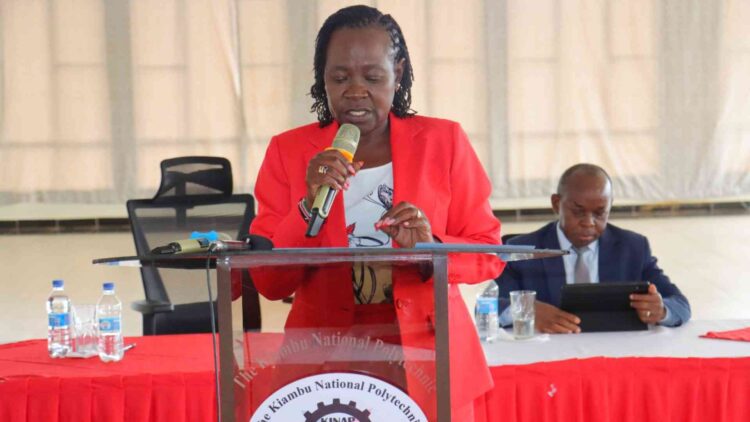Trainers from 20 North Rift TVET Institutions gets assessment, certification Through RPL.
Trainers from 20 Technical and Vocational Education and Training (TVET) institutions in the North Rift region have undergone advanced training on the Recognition of Prior Learning (RPL) programme. This government-led initiative, implemented through the State Department for TVET, is designed to ensure that any Kenyan with a practical skill is evaluated and awarded a certification in their area of expertise.
At the second phase of the training held at The Eldoret National Polytechnic (TENP) in Uasin Gishu, the TVET Director, Dr. Meshack Opwora, stated that the aim is to reach more than 15 million Kenyans across various sectors. He explained that they are preparing a team of trainers and assessors to reach individuals with skills but lacking formal certification.
Dr. Opwora emphasized that RPL certification holds the same value as conventional certifications, with the only difference being the method of acquisition. He pointed out that employers cannot distinguish between the two certificates, as the competencies validated are identical. These certificates are recognized both nationally and internationally.
He further explained that the department is using a competency-based curriculum broken down into specific skill sets. Depending on the individual’s abilities, they may receive full certification, micro-accreditation, or partial certification. Dr. Opwora encouraged skilled but uncertified Kenyans to approach TVET institutions for guidance and certification, stressing that certification is often necessary when applying for employment, contracts, or further education.
Expanding Assessment and Certification Capacity
The RPL Delivery Unit Director, Stanley Maindi, said that the programme is identifying, evaluating, and certifying millions of skilled artisans in the informal sector. Since the policy’s launch in March 2024, the government has been building assessment capacity through specialized trainer workshops nationwide.
He explained that this workshop in the North Rift and Western regions follows earlier sessions in the Lake, Coastal, and Mt. Kenya regions. The initiative also includes training master craft persons from the Jua Kali sector—individuals already active in their fields—on how to assess and certify prior learning.
Maindi noted that the goal is to reach over 15 million artisans contributing to the informal economy. These skilled individuals often miss out on opportunities due to the lack of certification. The government is now equipping all TVET institutions, including TENP, to function as assessment and certification centers. This allows anyone with skills to obtain a certificate without undergoing traditional training.
He reported that since the programme began, over 5,000 skilled artisans have already been assessed and certified. A survey conducted by KNQA revealed that a significant number of the 5,170 certified individuals have secured jobs, contracts, or enrolled in learning institutions to further their education.
According to Maindi, the initiative is aligned with the Bottom-Up Economic Transformation Agenda (BETA), aiming to empower skilled workers through affordable certification. The cost of assessment varies: approximately Sh 5,000 when conducted at the artisan’s workplace and from Sh 10,000 when done at a TVET institution. The fee increases with the level of certification sought.
He announced that the programme is working alongside the Kenya National Federation of Jua Kali to formalize the informal sector and offer a second chance to those who never had the opportunity for formal education. The government targets to certify over 700,000 artisans by the end of the year.
Read Also: How to Confirm Legitimate KNEC Certificate
TENP Chief Principal, Dr. Koech Charles, praised the RPL initiative as a groundbreaking step for TVET institutions. He highlighted its role in opening doors for Jua Kali and micro-enterprise sector practitioners through assessment and certification, commending the government for this impactful programme.
Richard Opar, the North Rift Regional Coordinator for the Kenya National Federation of Jua Kali Associations, lauded the government’s commitment to implementing the RPL policy after a 52-year wait since independence. He acknowledged the vital role of the Jua Kali sector, which employs over 17 million skilled individuals across various industries, in Kenya’s economy.
Trainers from 20 North Rift TVET Institutions gets assessment, certification Through RPL.



Discussion about this post